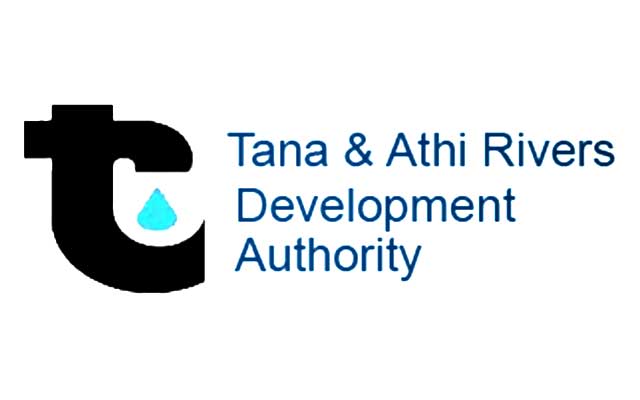Catchment Conservation
Tana Basin region experiences a myriad of challenges in its operations emanating from rapid increase in population and climate change which has affected virtually all sectors of the economy. This has led to high levels of poverty and unemployment which has resulted to over-reliance and over-dependence on natural resources such as land, forests and water. The outcome has been over-exploitation hence degradation of the catchment.
TARDA has developed some interventions to address these challenges in collaboration with the local communities which include environmental conservation through seedlings production, tree planting and soil and water conservation.
The Authority has established and maintains three (3) plant nurseries which are certified for the purposes of production of high quality seedlings for conservation of the catchment area. The seedlings are also availed to the communities at subsidized rates for planting for meeting their needs of food, timber, fodder, fuelwood, medicinal and aesthetic value. The plant nurseries also act as centres of learning on plant nursery management, plant technology transfer especially grafting and plant seedlings husbandry. The Authority is in the process of massive production of endangered species. Pencil cedar (Junipurus procera) and Rose wood (Dalbergia sissoo) are already available at our plant nurseries. Plans are underway to propagate other species specifically East African Sandalwood (Osyris lanceolata), East African camphor (Ocotea usambarensis) and Meru oak (vitex keniensis).
The plant nurseries under this region are located at: Masinga, Kiambere and Tana Bridge.
Plant Species In Tarda Nurseries
Plant Species In Tarda Nurseries
- Tree Planting
Tana Region endeavors to enhance catchment conservation; tree planting is one of the core avenues of achieving this objective. The National Strategy for achieving and maintaining 10% forest cover stipulates that tree cover must be increased to at least 10% of the country’s land area for the forest to continue supporting the growth of the National economy through the supply of forest goods and services. All government institutions are directed to actively participate towards achieving this objective.
TARDA undertakes seedlings planting individually and in collaboration with other key stakeholders such as
- Kenya Forest Services (KFS)
- Universities and Public Schools (Karatina University, Jeremiah nyaga)
- Correctional facilities (Ruiru Prison, Embu prison)
- County Governments of Embu, Meru, Nyeri
- The local communities within our area of jurisdiction.
The seedlings planted are ecologically suitable for the specific area and are usually produced in our nurseries. The planted seedlings are of great value hence the communities get an alternative source of livelihood (commercial afforestation) through sale of fruits, nuts, poles and posts. Some of the seedlings planted also have medicinal and aesthetic values.
The plants enhance the ecological aspects such as carbon sequestration and soil erosion control.
2. Soil and Water Conservation
TARDA partners with the community to construct soil erosion control structures such as gabions and terraces. The Authority also actively engages in water harvesting through scooping of water pans, small earth dams and constructing check dams which act as sand traps that benefit locals from the sale of the sand. The local communities also benefit from water provision from sinking and equipping boreholes. These efforts contribute to higher land productivity and availability of water for irrigation and household use.

